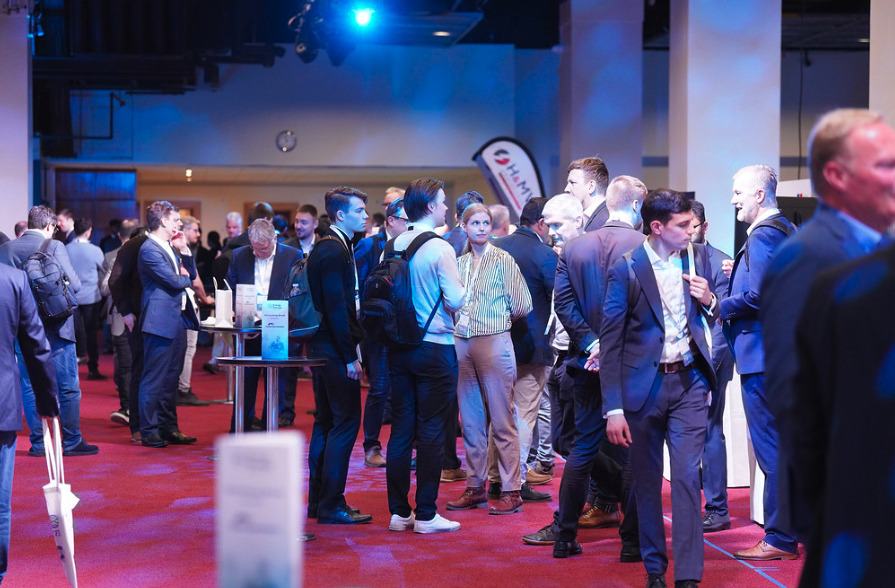
We discuss a 40MWh project in Finland with both the BESS provider Merus Power and customer/project owner eNordic, the investment manager in the region for private equity firm Ardian.
In an in-person interview at the Energy Storage Summit EU 2024 in London last month, Merus’ sales director Markus Ovaskainen and eNordic’s investment and M&A director Aleksi Lumijärvi talk about the project’s timing, its grid-forming capabilities and choice of 1-hour duration.
Enjoy 12 months of exclusive analysis
- Regular insight and analysis of the industry’s biggest developments
- In-depth interviews with the industry’s leading figures
- Annual digital subscription to the PV Tech Power journal
- Discounts on Solar Media’s portfolio of events, in-person and virtual
BESS pricing moves
The deal for a 38MW/40MWh system to be deployed in Lappeenranta was announced in early February, with the project owned by a joint venture between Ardian and utility Lappeenrannan Energia.
The announcement followed a period of sustained decline in the global price of BESS, according to data from Clean Energy Associates, with the fall particularly sharp from October 2023 to January 2024.
We ask Ovaskainen and Lumijärvi how this price trajectory affected the timing of the deal, which was said to be worth €15 million (US$16 million) for Merus Power, which is providing turnkey delivery of the BESS.
“We did numerous iterations on the price and ended up somewhere else from where we started. Of course, we have to follow up on where the market is so everyone gets a fair piece of the cake,” Ovaskainen says.
“The market moves, so the negotiations need to react to that, but I think we found a good balance in the end,” Lumijärvi adds.
Ovaskainen emphasises that Merus’ turnkey deliveries also include all grid compliance tests and technical acceptance tests required for commissioning a project.
Merus Power buys its BESS units and battery management systems (BMS) from existing suppliers but manufactures everything around it, including power conversion system (PCS) and energy management systems (EMS).
Project also includes grid-forming-capable inverters
Like other projects Energy-Storage.news has reported on recently – one project in Australia and another project in Scotland – the BESS will have grid-forming capabilities through specialised inverters.
“This is a new regulation that has come in only very recently in Finland by the Finnish TSO Fingrid, and it’s now valid for systems of this size. It will be one of the first to support the grid in this way,” Ovaskainen says.
“It is partially about artificial inertia, but ultimately it’s about how the system must react to sudden electrical phenomena in the network so that it reacts in a similar way to turbine-based generation. In Finland, there is a big pipeline of wind and power and the TSO is worried about the inertia and a lot of power electronic interfaced generation in the grid. So energy storage requirements are getting stricter so that it supports the grid in all situations.”
Deal timing for Ardian and wider energy storage plans
The project is the first energy storage investment of scale for Ardian, one of the world’s largest private equity investors, so is highly significant even if it’s not huge in investment size, Lumijärvi says.
“On timing, the prices in Finland’s frequency control markets are really high, and the regulations are changing with hydropower being squeezed out and renewables coming in, which creates a need for these batteries,” he says
“But everyone is indicating market saturation for frequency control moving forward, so in one sense, it’s a race against time to bring batteries online to capture those revenues.”
Lumijärvi says eNordic/Ardian are looking at additional ‘very concrete opportunities’ for projects in Finland as well as Sweden. “This won’t be the only battery investment for us in the Nordic countries.”
Choice of 1-hour system as other players move to 2-hours
Off the back of that market saturation point, we then asked Lumijärvi why eNordic/Ardian opted for a 1-hour system and whether there was optionality around increasing its MWh capacity at a later date.
Energy-Storage.news recently heard from optimiser Capalo AI that the sector in Finland was moving to 2-hours due to changing revenues and regulations, exemplified by a 2-hour, 112.9MWh project which IPP Neoen started building in January, Finland’s largest.
“Maybe in the future, the arbitrage will have a bigger role than it currently has, though I won’t disclose exactly what we think of this. Our analysis landed on a 1-hour battery,” Lumijärvi says.
Ovaskainen weighs in: “From our market analysis we could not justify 2-hour batteries in Finland yet. Going for 2-hour is a very forward-leaning investment, and assumes that in a few years, the arbitrage market may be more attractive than frequency regulation.”
Read all Energy-Storage.news coverage of the energy storage market in Finland here.

